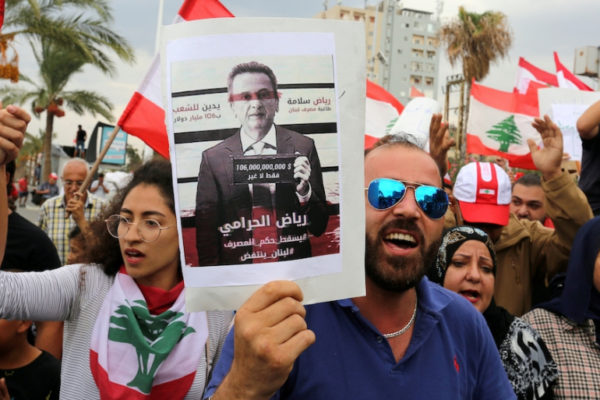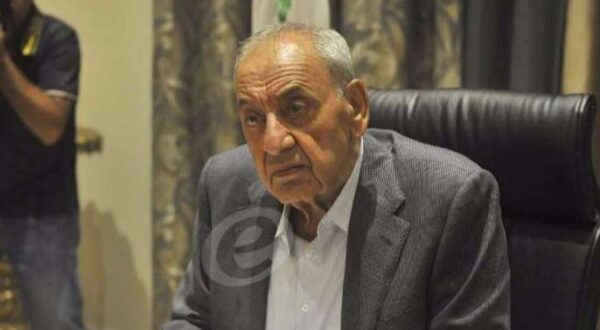Parliament Speaker Nabih Berri reiterated that “Lebanon is not a bankrupt country, but rather a defaulter in paying depositors their dues, which are sacred, whether they belong to individuals, unions, or institutions, and must be returned to their owners sooner or later.”
He pointed out, during his meeting in Ain al-Tineh with the heads of the engineers’ unions in Beirut, Tripoli, and the North, Fadi Hanna and Shawqi Fatfat, and members of the two union councils, on a protocol visit after the new elections for the two union councils, that “the only industry in which Lebanon thrives is the human industry.
Berri noted, “the competitive and democratic atmosphere that prevailed in the recent elections for the two unions,” stressing “the pivotal role that the liberal professions unions, including the lawyers and engineers unions, must play in creating the resurrection of Lebanon and presenting its best image at home and abroad.”
This is not the first time Berri has said that bank deposits are sacred. The first time he said this was over four years ago, on April 7, 2020. For this reason, according to analysts, few people believe Berri who has controlled the Ministry of Finance for over 2 decades.
Lebanon’s financial collapse was caused by “something similar to a Ponzi scheme”, UN Secretary-General Antonio Guterres said in videotaped comments made during a closed-door meeting on his visit to Beirut in 2021.
Ponzi Scheme

Lebanon is in the fifth year of an economic meltdown that began in 2019 when the financial system collapsed under the weight of huge state debt — the result of decades of corruption and mismanagement — and the unsustainable way it was financed.
Critics of the Lebanese authorities have compared the financial system to a Ponzi scheme, depending on fresh borrowing to pay back existing debt. The central bank chief denied this on many occasions but Berri refused to allow the investigation of the central bank and he was the top backer of its disgraced chief Riad Salameh who is wanted in several European countries over money laundering, stealing, and corruption.
“As far as I understand, what has happened in Lebanon is that Lebanon was using something similar to a Ponzi scheme … which means that together with of course corruption and other, probably, forms of stealing, the financial system has collapsed,” UN UN Secretary-General Antonio Guterres said in a video, which was circulated widely on social media on Dec 21, 2021.
The crash has caused the Lebanese pound to lose more than 98 percent of its value and people have been frozen out of their deposits in the paralysed banking system.
During his press conference, Guterres said Lebanese leaders needed to convince the international community to support Lebanon by enacting reforms “concerning the economic, the social and the political life of the country” and by adopting a “credible economic recovery plan” for talks for an International Monetary Fund support program.
He blasted the Lebanese leaders who claimed that the deposits are sacred.
IMF considers the claim a denial of reality
By the numbers: Out of approximately $167 billion in deposits in banks in October 2019, all that remains in cash in Lebanon’s central bank is about $8 billion, according to an August 2023 report by LBC.
Even with this $8 billion, the IMF has warned officials about their uncertain fate, given political pressures and the state’s inability.
According to sources, the IMF has informed the Lebanese that the state is bankrupt, if it uses its assets to cover the losses, it will be unable to repay its debts, further hindering its situation.


Leave a Reply
You must be logged in to post a comment.